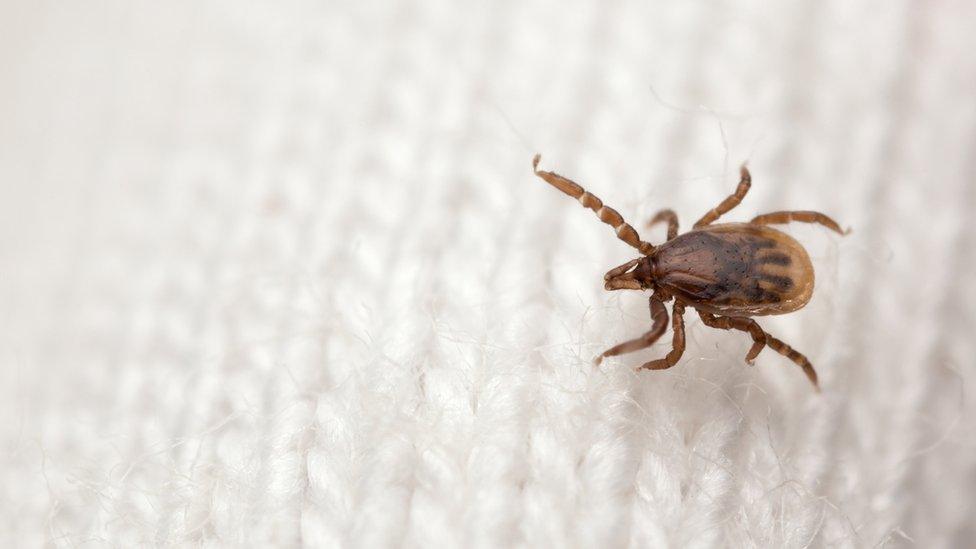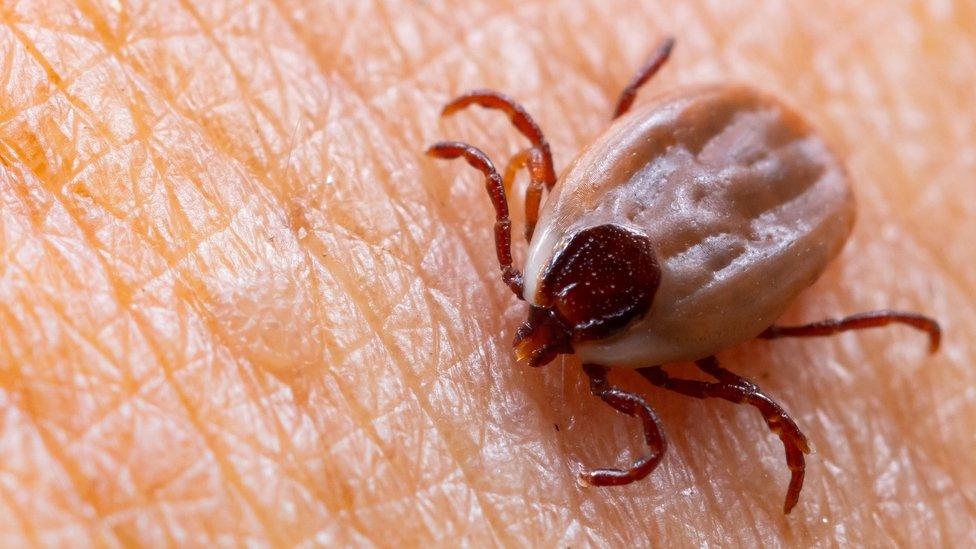Scots to take part in new European tick project
- Published

Ticks are tiny spider-like creatures
Scotland is to be part of an initiative aimed at improving the detection and treatment of tick-borne diseases.
The NorthTick Project involves the wider UK, also Denmark, Sweden, Norway, Germany, Belgium and the Netherlands.
Scientists at the Inverness-based Scottish Lyme Disease and Tick-borne Infections Reference Laboratory (SLDTRL) are among experts involved.
The project hopes to develop new tests to make diagnosis of diseases easier and also more targeted antibiotics.
Lyme disease is one of the infections that can be spread to humans from the bite of ticks carrying the Borrelia burgdorferi bacteria.
About 200 people a year in Scotland are recorded with Lyme disease but the true number is thought to be much higher.
Ticks are tiny spider-like creatures that live in undergrowth and feed on the blood of animals, including sheep, deer and dogs.
Dr Sally Mavin, deputy director SLDTRL, said there had been a "big rise" in cases of all forms of tick-borne infections over the past 20 years.
She said: "We want to get to grips with the different tick-borne diseases.
"Different project partners will be looking at different diseases and the best ways to diagnose those diseases with new tests and technologies."
The NorthTick Project has funding for the next three and half years.
- Published20 November 2019

- Published22 August 2019

- Published17 June 2019
